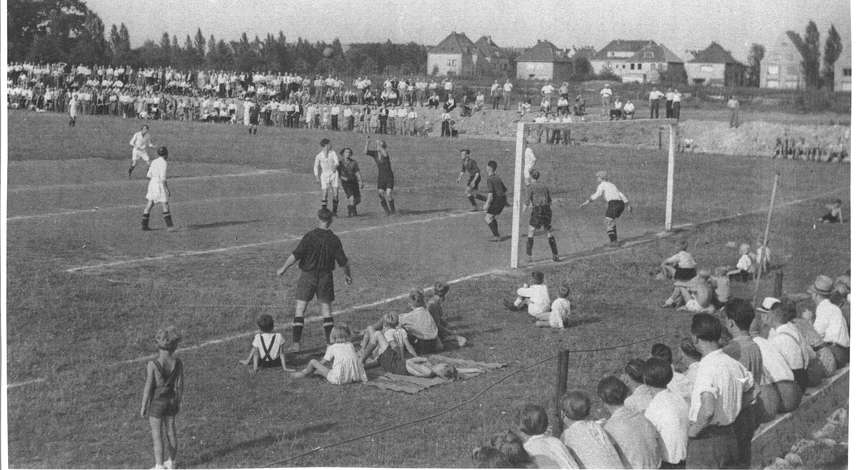
The 'Bayer team' led 3-0 after 15 minutes. Centre forward Karl Peckhaus and a brace from Heinstmann were the scorers. Jahn Küppersteg recovered well and were able to pull it back to 3-2 thanks to two goals from their inside left Goldmann. The goalkeeper Ernst König did not look good for the first goal conceded and with the second it was the two defenders Fritz Heider and Karl van Frank. Heinstmann then made it 4-2 before half-time.
The second half brought "some strong challenges that are unavoidable in such a local game" (Anzeiger 23.10.1933). The Küppersteg players again pulled a goal back. Goldmann found the back of the Spvgg net for the third time but the Bayer team hit back with a strike from Karl Stachelscheidt for the final score 5-3.
There were two Jewish players in this team in defender Karl van Frank and his brother Richard, the left winger at Spvgg Leverkusen 04. Their father Samuel owned a cinema in Leverkusen. On 26 November 1933, just one month after this game, the van Frank family fled to the Netherlands. The two young men played the rest of the season for the Werkself travelling to games from the Netherlands. Their names finally disappear from the line-ups from the 1934/35 season. After the invasion of the Netherlands by German troops, the family were able to hide with Dutch friends and thereby avoid deportation to concentration camps. After the war, the brothers followed the profession of their father and opened two cinemas in Haarlem (Richard) and Beverwijk (Karl).
Jahn Küppersteg merged with TuS Manfort to form VfL Leverkusen in July 1950 And the club was dissolved in 2017 with the youth section moving over to SC Leverkusen.
Related News

Birthday boy of the month: Heiko Scholz turns 60
Heiko Scholz was born on 7 January 1966 in Görlitz. His first club as a youth player was Dynamo Görlitz. From there, he moved up to the sports school in Dresden and played in the youth teams at SG Dynamo Dresden from 1978-1982. Not considered good enough, Scholle, as he was nicknamed, had to leave the sports school to play his last two youth years at ISG Hagenwerder. Via BSG Chemie Leipzig and 1.FC Lokomotive Leipzig, who Heiko won the DDR Pokal with in 1987 and he also reached the European Cup Winners' Cup final (a 1-0 defeat against Ajax), his path finally led him back to his favourite club, Dynamo Dresden. For one million Deutschmarks, the highest transfer fee ever paid for a player in the former GDR, he moved from Lok Leipzig to the capital of Saxony in 1990.
Show more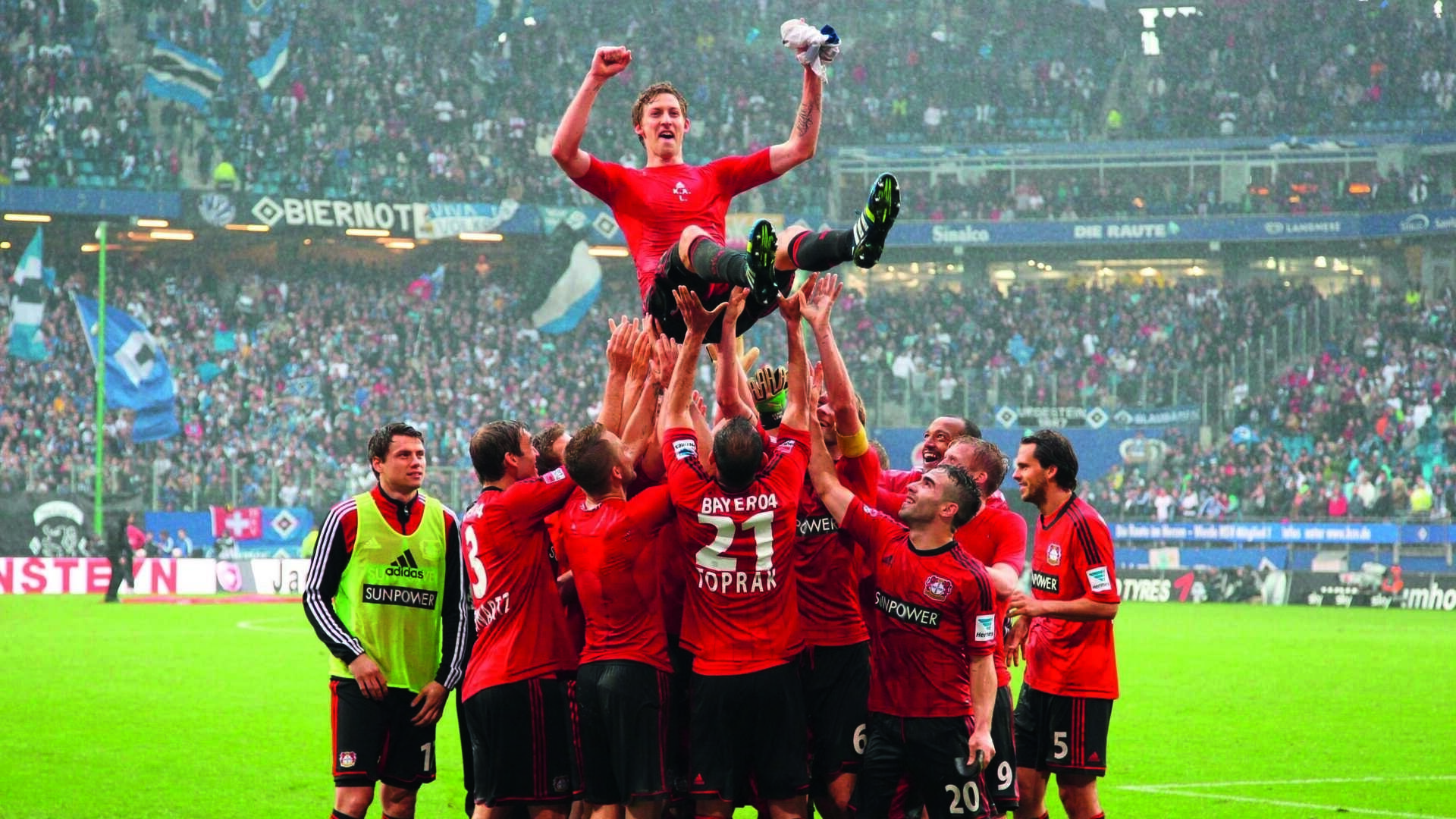
Legends: Stefan Kießling - goalscorer, team player and club idol
Stefan Kießling was born on 25 January 1984 in Lichtenfels, Franconia. Even as a young boy, he spent countless hours on the football pitches of his home town, chasing after the ball and dreaming of playing football. His parents supported him, but they bring him up in a down-to-earth manner - hard work, honesty and modesty are values that characterise him from an early age. His talent became apparent early on, but his ambition was even more striking. Kießling always wants to improve, wants to give more than others.
Show more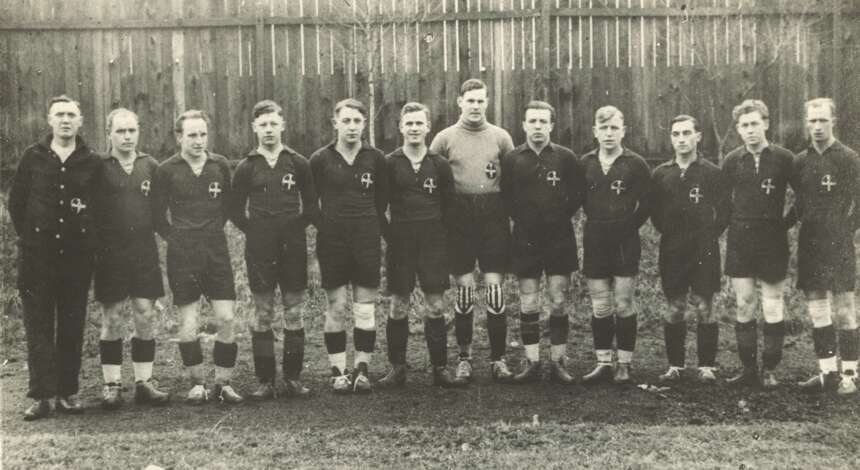
From the archives: 90 years ago - a big match in Leverkusen
On Sunday 26 January 1936, the local derby between relegation-threatened BV Wiesdorf and league leaders SSV ‘Bayer’ Leverkusen took place in the first district league of the Rhein-Wupper district. On the old BV Wiesdorf pitch, where the Leverkusen job centre is today, 1,800 spectators gather to watch the match.
Show more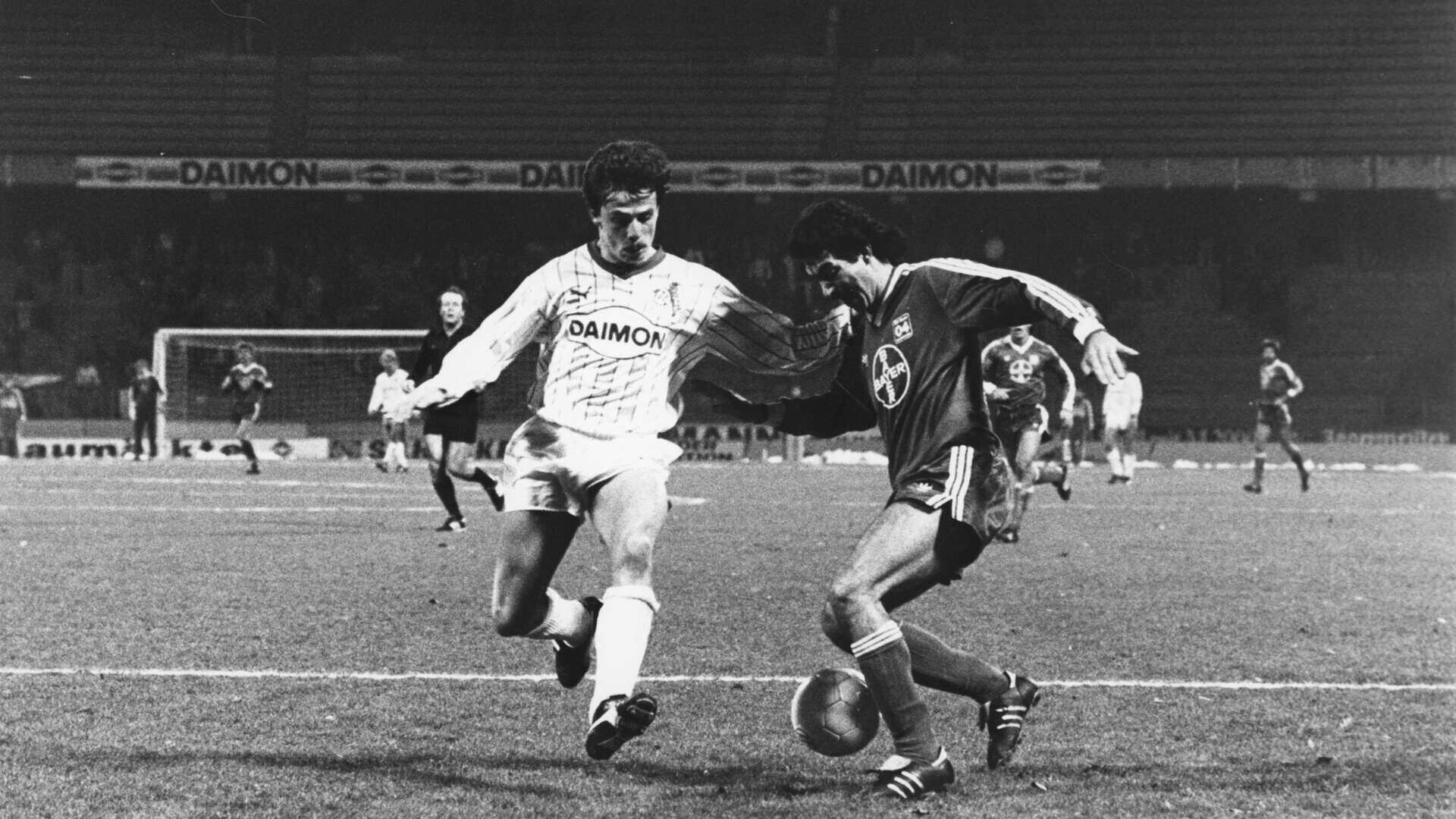
Match of the month: 40 years ago - First Bundesliga win in Müngersdorf
It is Friday, 31 January 1986, the derby in Cologne is coming up and we're full of confidence after the home win against Hamburg SV a week earlier, having turned a 2-0 deficit at the break into a 3-2 victory. In particular, the Greek amateur player Minas Hantzidis, who came on as a half-time substitute, turned the game around. Two goals from Bum-kun Cha and a penalty from Christian Schreier gave us two important points in the battle for a UEFA Cup place. We are one point behind the North Germans in fifth place in the table, six points ahead of our neighbours from Cologne.
Show more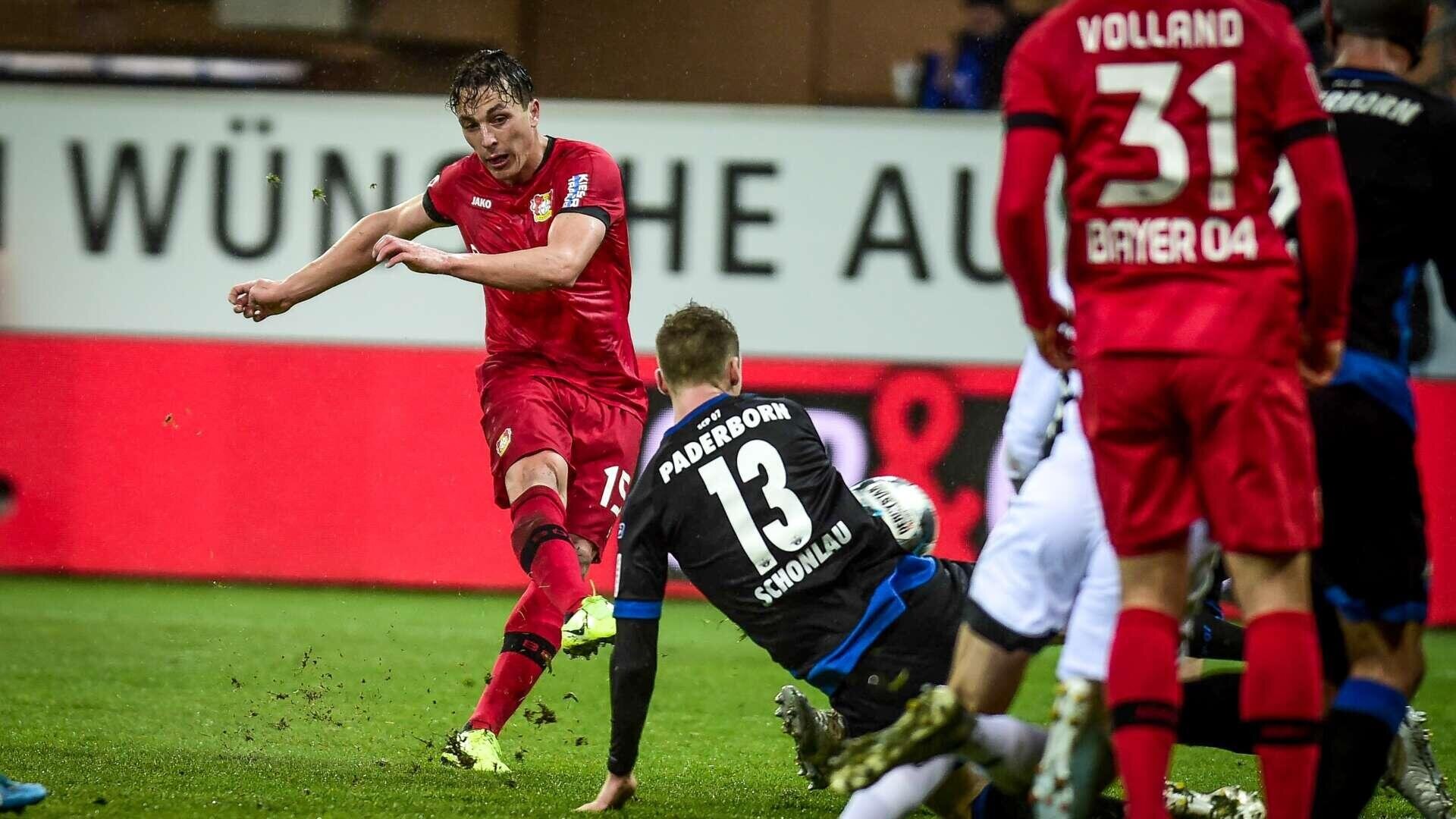
Goals of the month: From Cha to Baumgartlinger
In this video you can see impressive and important goals in Bayer 04 history from the month of January. It's not always about the beauty of the goals, but also a reminder of special games and players.
Show more